The Patricia and Peter Shannon Wilson Undergraduate Research Prize
The Patricia and Peter Shannon Wilson Undergraduate Research Prize is awarded to current undergraduate students enrolled at the University of Toronto during each academic year. The purpose of this prize is to showcase and award students’ effective and innovative use of information sources and the development of their understanding of what it means to be information literate in the 21st century.
Read more about the competition criteria
2020 Prize Winners
Kiera Farrell-Beaulieu
2nd year Innis College, Faculty of Arts & Science
Research project
The Opioid Epidemic That’s Killing Ottawa Youth: Trapped by Stigma, an Unforgiving System, and an Oppressive Socio-Cultural Environment
Course: JGI 216: Globalization and Urban Change
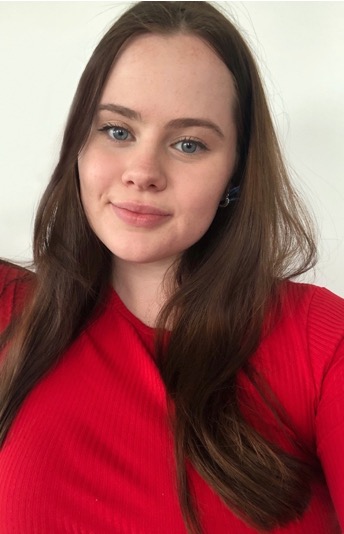
About Kiera
What is your major and expected year of graduation?
“I’m an Innis College student going into my third year as a Political Science major with a double minor in Spanish and Diaspora & Transnational Studies, and I expect to graduate in 2022.”
What does it mean to you to win this prize?
“Winning this prize has been the most significant achievement both in my personal life and in my career thus far at the University of Toronto."
What inspired you to choose this research subject?
"I grew up in a predominantly white, middle-class suburb and went to Catholic school, where my peers and I lived the harsh reality of teenagers struggling with mental health and drug use. I’m so thankful that I took JGI 216, as it gave me the opportunity to go far beyond the classroom and answer my childhood questions about the plight in my community."
What did you learn about information-seeking, research, and/or libraries while completing your project?
“This research project taught me just how beautifully a search can be tailored to a project’s intricacies amidst a sea of information. I learned to modify advanced searches and subject-specific databases according to date, geography, or publisher and took great interest in learning about the peer-review process. Moreover, learning how to properly navigate and use references between scholarly literature in my research field helped strengthen my final project. Lastly, winning this prize shows that my research is going in a positive direction that can lead to an attitude shift in society’s treatment of teenage addiction and mental health. It also means hope - for me, my classmates, community members, and the parents of those who passed away - that this crisis doesn’t have to be a permanence in our community.”
“Kiera’s research paper on Ottawa’s opioid epidemic was written with interdisciplinary scholarly sources, newspaper articles, analysis of federal and provincial legislation, public policy, and most impressively, her own lived experience... More than the finished research paper... what made Kiera’s work exceptional was her research process, her ‘methods,’ and her creative efforts in searching, evaluating, and synthesizing information sources across traditional disciplinary boundaries in scholarly research.”
- Dylan Simone, instructor for JGI 216: Globalization and Urban Change
Tegan Ridge
4th year St. Michael’s College, Faculty of Arts & Science
Research project
Love and War: The Sound World of Othmar Schoeck's Penthesilea
Course: TMU 499Y1: Independent Study
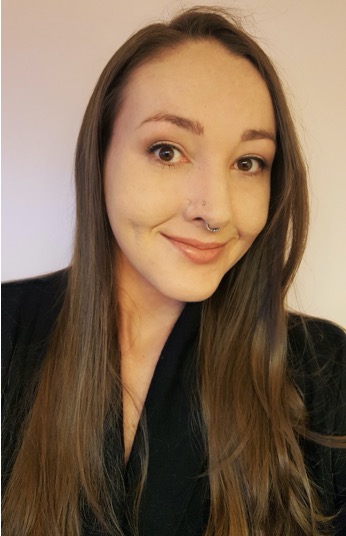
About Tegan
What is your major and expected year of graduation?
“I’m a St. Michael’s College student pursuing a BA in German Studies and Music through the Faculty of Arts & Science; I’ll be graduating in 2021.”
What does it mean to you to win this prize?
“I’m honoured to be among the finalists for the University of Toronto Libraries' Patricia and Peter Shannon Wilson Undergraduate Research Prize! This award is quite unique; for me, it’s both an acknowledgment of oft unseen hard work and a solid motivator to continue developing my research skills.”
What inspired you to choose this research subject?
“I was first inspired to look at Schoeck’s Penthesilea because I loved the music drama’s story. Schoeck was Swiss, the libretto for the music drama written in German. Consequently, much of the scholarship I uncovered referred to materials held in German-speaking lands. With the help of librarians at the University, I was able to reach out to archives abroad and obtain digitized materials.”
What did you learn about information-seeking, research, and/or libraries while completing your project?
“I was amazed to learn how interconnected the research world is, and I feel like a wealth of international scholarship has opened up to me.”
"Notably, in the existing literature on Schoeck, there is no precedent for the kind of multifaceted study Tegan completed. Tegan’s final paper is rich in theoretical and analytical detail, and moreover, due to her keen understanding of an eclectic body of scholarship and the gaps therein, she offers several innovative insights."
- Professor Daphne Tan, supervisor for TMU 499Y1: Independent Study
Colin Stewart
4th year University College, Faculty of Arts & Science
Research project
Report on Bone Handle and Wood Sheath from the University of Toronto's Malcove Collection
Course: VPHD 42Y3: Supervised Reading in Art History
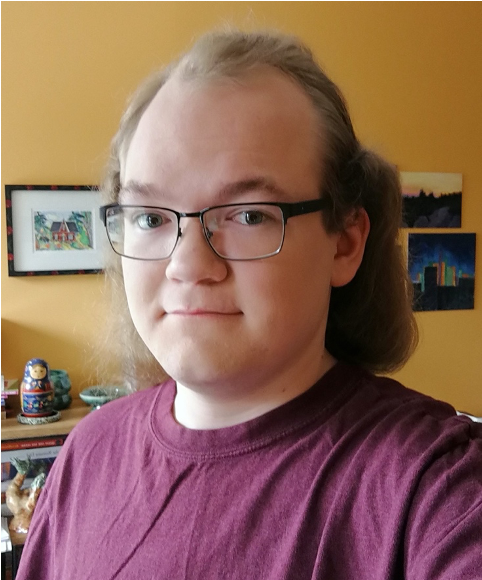
About Colin:
What is your major and expected year of graduation?
“I am an Arts & Science student at University College, pursuing a double major in art history and history, and will graduate in November 2020.
What inspired you to choose this research subject?
“I decided to research objects in the University of Toronto’s Malcove Collection after taking part in a similar project at University of Toronto Scarborough with Dr. Erin Webster as part of the Jackman Scholars in Residence program in 2019. Conducting original research on little-studied objects was the highlight of my undergraduate experience, so naturally I decided to do more as an independent study.”
What did you learn about information-seeking, research, and/or libraries while completing your project?
Doing a year-long research project taught me a lot about information-seeking, principally how to exhaust my means of searching, and if I still could not find what I was looking for, to ask either a librarian or an expert. I learned that good research is not done by solitary warriors, but with the support of a whole network of people, in my case spread across three continents and many languages and professions.”
What does it mean to you to win this prize?
“I am honoured to have been selected as a finalist for this research award along with such great other projects in such different disciplines!”
“This is not easy, quick or straight-forward research, and Colin must be commended for the dedication, diligence and scholarly patience he has demonstrated through his study… His ability to simultaneously conduct original research while assessing the quality and contribution of the scholarly sources is a formidable combination, rarely seen in undergraduate-level projects.”
- Professor Erin L. Webster, supervisor for VHPD 42Y3: Supervised Reading in Art History
Emma Sullivan
3rd year Victoria College, Faculty of Arts & Science
Research project
CRISPR-Cas9 Directed Removal of Duplications in Pelizaeus Merzbacher Disease
Course: HMB 496: Research Project in Human Biology
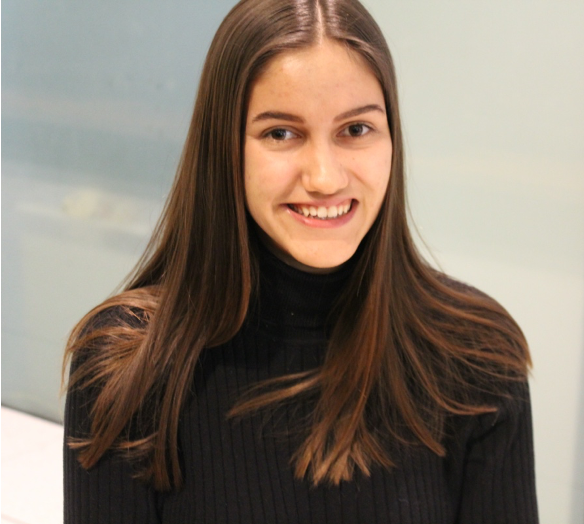
About Emma
What is your major and expected year of graduation?
“I am a Victoria College student double-majoring in Cell and Molecular Biology and Health and Disease, expecting to graduate in 2021.”
What inspired you to choose this research subject?
“Over the previous academic year, I completed a research project through HMB496 in the lab of Dr. Ronald Cohn at SickKids; I was initially interested in their work applying gene editing technologies to hereditary rare diseases, and sent in my application. When I began in the fall, I joined a project studying Pelizaeus-Merzbacher Disease (PMD), something I had never heard of before. It was such a unique and exciting opportunity to immerse myself in this project as I learned everything from scratch; both about PMD from the existing literature, and how to perform required lab techniques and software manipulations.”
What did you learn about information seeking, research, and/or libraries while completing your project?
“The most important thing I learned through this process is to ask questions. Either as experts or sounding-boards, discussing complications with others helped me several times to adjust my perspective, so I could find the information where I hadn’t previously been looking.”
What does it mean to you to win this prize?
“I feel incredibly honoured to have my research efforts recognized by the UofT Libraries Undergraduate research prize. This project was such an enriching experience for me, and I think it is so important that the libraries encourage and provide the resources for students to pursue research projects as undergraduates.”
“During the entire project, Emma continuously learnt and updated herself by searching through the scientific literature… Every time she encountered a new challenge, she went back to study what was published on the topic and brought back the possible solutions to the lab. Thus, she gave key contributions in developing new analysis systems (i.e., understanding how to deconvolute whole genome sequencing data) and implement new techniques (i.e., culturing neural stem cells) that were not well-established expertise of the laboratory.”
- Eleanora Maino, HMB 496 project supervisor. Course taught by Professor Colleen Dockstader
Sally Walker-Hudecki
2nd year Trinity College, Faculty of Arts & Science
Research project
Temporary Fixture: The Beginning of Television and John Logie Baird’s Lasting Impact
CIN 201: Film Cultures I

About Sally
What is your major and expected year of graduation?
“Cinema Studies Major in Trinity College - aiming to graduate 2022.”
What does it mean to you to win this prize?
“This recognition means that I am on the right path. I am honoured to share the recognition with the other students and to receive the support of the university libraries. I look forward to contributing more to this area in the future. I'm returning to university part-time while working and having such positive feedback is incredible.”
What inspired you to choose this research subject?
“I chose to research the technological beginnings of television because I've been interested in expanded cinema, projection devices and all kinds of technological ephemera and apparatuses for years. In fact, I showed my own film projection invention at Hart House's 100th anniversary in September 2019, which feels so long ago.”
What did you learn about information seeking, research, and/or libraries while completing your project?
“Doing this project reminded me of the continued relevance of access to museums, which allowed me to focus my intention and energy on the project while wandering through a space and daydreaming. Viewing physical objects is still a valid way to research. I found Kate Johnson a powerful presence of support from my very first visit to Innis Library and throughout the project. Her positivity is necessary and her openness with information shows kindness.”
"Sally’s triumph is to integrate her research seamlessly into a thoughtful and provocative essay that charts how emerging definitions of a novel spatiotemporal medium developed alongside technological experimentation…It is a vibrant demonstration of how research can breathe life into past events, providing social context, illuminating institutional pressures, and animating human agency.”
- Professor Charlie Keil, instructor for CIN 201: Film Cultures I
Braden Zufelt
4th year Trinity College, Faculty of Arts & Science student
Research project
Policy, Press and Misperception: The Myth of Anglo-French Hostility to German Reunification, 1989-90
Course: TRN 410: Understanding Contemporary International Relations
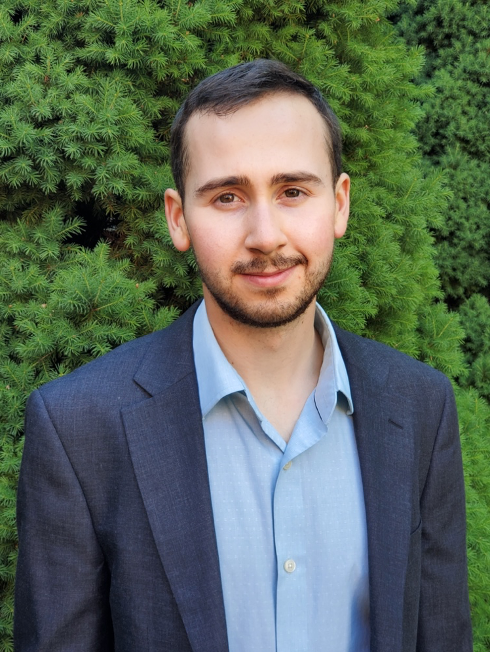
About Braden
What is your major and expected year of graduation?
“I graduated from the University of Toronto’s Trinity College with high distinction in the June of 2020, where I majored in international relations and philosophy, and minored in history.”
What inspired you to choose this research subject?
“I have completed coursework in history ranging in focus from the medieval period to the twentieth century, and one basic aspect of historical research has not ceased to fascinate me: the degree to which primary and secondary sources harbour the potential to skew our understanding of historical facts. When I read the works of Frédéric Bozo and Patrick Salmon describing how recently released archival evidence refutes the conventional view that Britain and France were hostile to German reunification, my fascination with the capacity of sources to distort facts impelled me to acquire a greater understanding of this conventional view, particularly how it survived for so long.”
What does it mean to you to win this prize?
“To win one of the six undergraduate research prizes for this investigation is indeed an honour, and one which has made the end of my undergraduate career all the more rewarding.”
What did you learn about information seeking, research, and/or libraries while completing your project?
“Prior to my investigation, I had not fully understood the wealth of databases available through the University of Toronto Libraries, specifically those housing historical newspapers. Noting the availability of these databases has led me to a greater appreciation of libraries not only for the resources they offer, but also for the institutions themselves: libraries are the organisational bedrock of any academic discipline, though perhaps most especially the humanities—which are fundamental to our understanding of the world and each other.”
“Braden utilized and integrated into his narrative very successfully a broad, interdisciplinary range of sources, both primary and secondary… Unquestionably Braden is a brilliant analyst and writer; yet by reading as widely as he did, he is able to put forward this genuinely original interpretation."
— Professor John M. Dirks, instructor for TRN 410: Understanding Contemporary International Relations